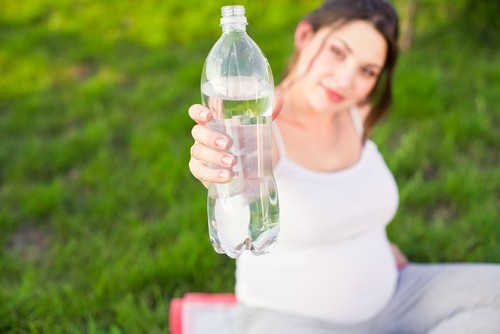Dehydration during pregnancy can lead to serious pregnancy complications, including neural tube defects, low amniotic fluid, inadequate breast milk production, and even premature labor. These risks, in turn, can lead to birth defects due to lack of water and nutritional support for your baby.
How Much Water Should a Pregnant Woman Drink?
Dehydration is the result of your body losing water faster than you are taking it in. When you’re pregnant you need more water than the average person, at least 8-12 glasses a day. Water plays an important role in the healthy development of your baby such as helping to form the placenta, which is what your baby relies on to receive nutrients during pregnancy. Water is also used to form the amniotic sac later in your pregnancy. Therefore, it is important to avoid dehydration during pregnancy.
Other Ways to Avoid Dehydration
Avoiding products that contain caffeine is a good idea, as caffeine can increase your urine output, thus leading to dehydration.
Another way to prevent dehydration is to avoid activities that can cause overheating, such as strenuous exercise or spending a lot of time in a hot environment. Exercise is considered healthy for expecting mothers, but strenuous exercise and lack of water intake can lead to dehydration.
Signs and Symptoms of Dehydration During Pregnancy
A common sign of dehydration is “maternal overheating.” Having adequate water in your system will help you regulate your body heat; however, if you are not drinking enough water during pregnancy, you can be prone to overheating. A sign of being well-hydrated is having a clear urine color, as opposed to dark yellow.
If your urine is dark yellow, that’s a sign you need to increase your water intake.
Want to Know More?
Sources:
Mayo Clinic – Dehydration. https://www.mayoclinic.org/diseases-conditions/dehydration/basics/symptoms/con-20030056
Livestrong The Effects of Dehydration in Pregnant Women on the Baby: https://www.livestrong.com/article/505961-the-effects-of-dehydration-in-pregnant-women-on-the-baby/






